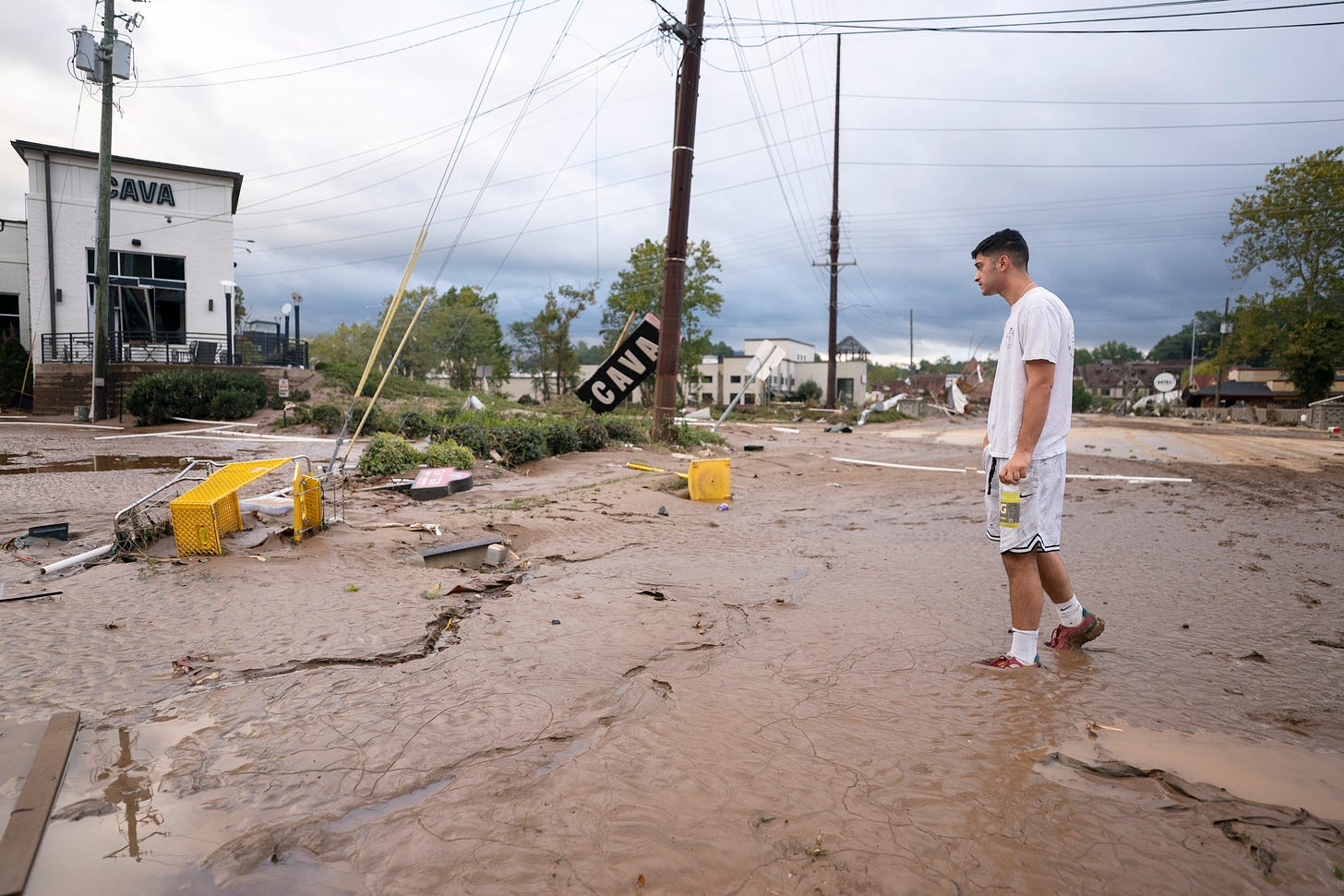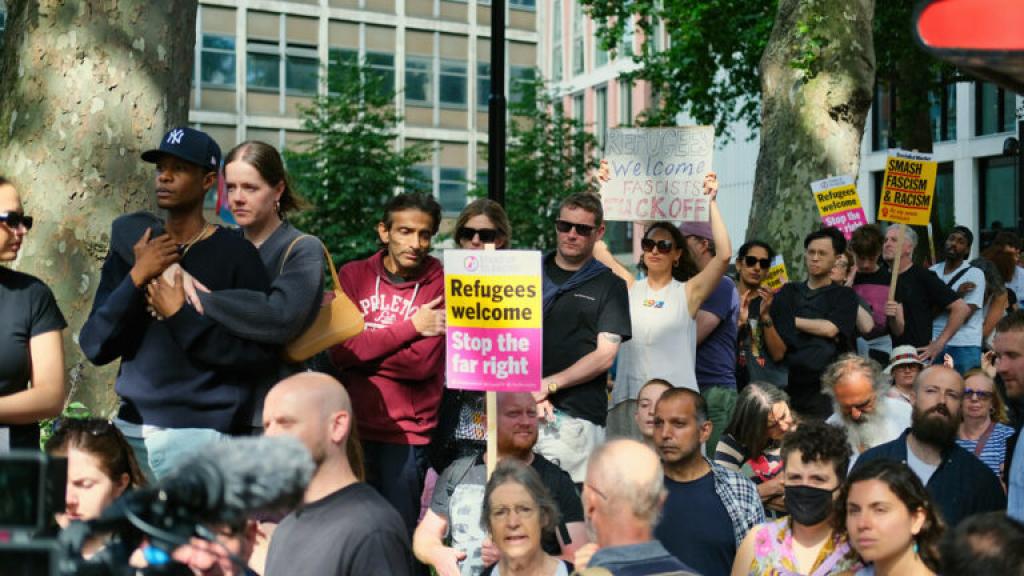Missouri, Alaska and Nebraska are voting on ballot measures that could raise wages for nearly a million workers.
This election season, there’s understandably been intense focus on ballot questions that will affect reproductive rights, but there’s been less discussion of the fact that multiple states will also be voting on whether to raise their minimum wage and grant workers paid sick time.
Twenty-six states have an initiated constitutional amendment process, which allows citizens to place legislation on the ballot for a vote by gathering a predetermined number of signatures. The strategy is often an effective tool for activists who are up against right-wing state legislatures opposed to liberal reforms.
The Fairness Project is an organization founded on the premise that increasing wages, advocating for working families and improving benefits are popular, nonpartisan priorities if you can get them in front of voters.
“If you can put it on the ballot, people love to vote for a raise,” the group’s executive director, Kelly Hall, told Truthout. “This strategy has resulted in raising the wage every time it has gone on the ballot. It’s been a very effective tool for helping to separate common-sense issues like raising the wage from the partisan politics that keep these highly popular issues locked up in state houses.”
As Hall notes, red state voters living in states with the amendment process have consistently elected to raise wages, expand health coverage and establish paid sick leave.
“These issues are associated with progressives, but they have a great deal of support on the ground everywhere,” Hall said. “Fighting back against ‘Obamacare’ might be a litmus test for how much of an extreme conservative you are, people on the ground support having health care for their low-income neighbors and having the funds to keep their hospitals open. There is a lot more complexity in how folks want to support their communities than the candidates they are given the option to vote for necessarily reflect.”
Ballot Initiatives in Missouri, Alaska and Nebraska
When they vote in November, Missouri voters will decide on Proposition A, which would raise the state’s minimum wage and mandate paid sick leave for all private employees. If passed, the minimum wage would rise from $12.30 to $13.75 by 2025, and reach $15 per hour in 2026. Employers would be required to provide one hour of sick leave for every 30 hours worked.
According to the Economic Policy Institute (EPI), the move would mean more money for about 900,000 workers. The group Missourians for Healthy Families and Fair Wages says that boost would help 137,000 parents and, by extension, 338,000 kids in the state.
Missouri Jobs with Justice Executive Director Caitlyn Adams told Truthout that Missourians are a more complex voting bloc than people might assume, pointing to the fact that the state increased the minimum wage in 2018 and passed Medicaid expansion in 2020.
“Missouri is definitely a state that uses the ballot initiative as a tool to pass progressive policy,” said Adams. “We have a pretty hostile state legislature, but we have a lot of momentum because we have a lot of voters who support these economic issues but don’t necessarily connect those issues to the candidates they elect.”
“We’ve been building an arc of policies in concert with grassroots groups and directly impacted people,” added Adams. “We are in cahoots with workers. We’ve really been building these policies with people; we haven’t pulled them out of the sky. They are things that are going to give people tangible wins in their life and build power for use in local arenas.”
Jonathan Gartin was working as a line cook in Springfield, Missouri, during the 2018 vote, and the pay bump inspired him to become involved in organizing.
“It was Missouri voters who gave me my first raise. I remember being able to fix my car for the first time, it really helped me and it made me realize what people can do,” he told Truthout. “It was really an empowering experience.”
This time around, Gartin helped gather signatures to put Prop A on the ballot. He says he was very excited to hear that paid sick time was also being addressed, as he’d seen the need for such legislation while working in the food service industry.
“I was a waiter in 2020 when the pandemic hit,” said Gartin, “We had a cook come in sick, a mother who didn’t have sick time. Half the restaurant ended up getting COVID, and we were shut down for days. This is a safety net that everyone needs.”
A minimum wage hike and paid sick leave are also on the ballot in Alaska. The measure would raise the state’s minimum wage from $11.73 to $13 beginning in 2025, $14 per hour beginning in 2026, and $15 per hour beginning in 2027. It would also require employers with fewer than 15 workers to award 40 hours of paid sick leave to each employee on an annual basis. Employers with 15 or more workers would be required to award 56 hours.
An EPI report from May found that the question’s passage would mean a raise for 30,800 workers, collectively netting them an additional $51,141,000 in wages. More than 20 percent of the workers possibly getting an increase currently have incomes below the federal poverty line, and nearly 50 earn less than 200 percent of the poverty line. Women make up more than half of the workers who would see their wages raised. The initiative would also disproportionately benefit workers of color.
Again, Alaska is often viewed as a solidly red state because it’s consistently won by Republican presidential candidates and is associated with its former governor, Sarah Palin. However, Alaska AFL-CIO’s President Joelle Hall says such initiatives prove that the state is actually purple.
“We’re like a cake,” Hall told Truthout. “The frosting is what people perceive as being our federal presentation. For 50 years we only had Republicans serving in Congress, but really this is a Sarah Palin bias,” she says, referring to the former governor and vice presidential candidate.
“We’re pretty purple. If you look at our legislature, we have a coalition government with Republicans, Democrats and independents,” she continued. Hall added:
Generally, the state’s politics is “It’s none of your damn business what I do.” We are pro-choice, we don’t care who you marry. We like guns, we like to hunt, we like to fish. We are more on the libertarian side of conservatism than opposed to the religious fundamentalist side of conservatism. We’re very middle of the road if you distill it down and those people usually vote for the candidate that they think is going to do the best job. They’re not really bothered with partisanship. Sixty percent of Alaskans choose neither party. That tells you that people want to be flexible with how they vote. We look conservative from the outside, but I’d say that’s the Sarah Palin filter.
These aren’t the only red states where labor issues are on the ballot.
A Nebraska question would require all Nebraska businesses to offer paid sick leave to workers, earning them one hour of leave for every 30 hours worked. More than 250,000 workers currently lack paid sick time in the state.
Like other red states with the ballot initiative process, Nebraskans have consistently backed wage hikes despite their conservative reputation. In 2022, nearly 60 precent of voters backed a minimum wage hike that will incrementally raise the rate to $15 an hour by 2026.
Federal Minimum Wage
The year 2024 marks the 15th year in a row that the federal minimum wage has remained at $7.25.
“When I am president, we will continue our fight for working families of America, including to raise the minimum wage,” Democratic presidential nominee Kamala Harris told the crowd at an August campaign event in Las Vegas, Nevada, but there’s ample reason to view this claim skeptically, as she’s not the first candidate to make it and has offered very little in the way of details.
GOP nominee Donald Trump hasn’t claimed that he will raise the minimum wage and in 2020 he expressed skepticism about raising the rate. “How are you helping your small businesses when you’re forcing wages?” he said during a 2020 debate. “What’s going to happen and what’s been proven to happen is when you do that these small businesses fire many of their employees.”
According to Business For a Fair Minimum Wage — a national network of business owners pushing to raise worker wages — 20 states have minimum wages that are no higher than the federal rate. Unsurprisingly, many of these states lack a ballot initiative process that allows organizers to take the question directly to the people.
National Employment Law Project senior researcher and policy analyst Yannet Lathrop told Truthout that workers continue to face an uphill battle in many of these states.
“If you have legislatures not willing to pass pro-worker policies and you don’t have the ballot initiatives at your disposal you can continue to bring up the issue,” said Lathrop. “Unfortunately, it doesn’t always mean that you will get the policy. You’re relying on some sort of federal action to raise wages and improve working conditions, but the public needs to understand these are important issues.”






